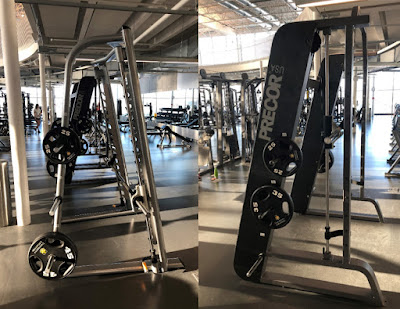Prioritizing Occupational Health and Fitness
A path to professional success
The physical demands of some occupations are well documented. Some careers, such as police and firefighters, have fitness tests built into the application process to ensure you can handle the job's physical demands. For the rest of us, with the hustle and bustle of today's fast-paced work environment, it's easy to neglect our health and fitness.
However, maintaining a balanced and healthy lifestyle is crucial for long-term professional success. Occupational health and fitness go hand in hand, contributing to increased performance, reduced absenteeism, and improved overall well-being. In this blog post, we will explore the importance of prioritizing occupational health and fitness and practical strategies to integrate them into our daily lives.
Occupational health refers to promoting and maintaining physical, mental, and social well-being in the workplace. Here's why it deserves our attention:
A) Enhanced Productivity
A healthy workforce is a productive workforce. Employees who are physically and mentally fit can focus better, make informed decisions, and accomplish tasks efficiently. They are also less likely to suffer from fatigue throughout the day, enabling them to maintain a higher performance rate.
B) Reduced Absenteeism
Illness and chronic health conditions can lead to increased absenteeism and decreased productivity. Some professions are physically demanding, such as carrying objects or high-risk movements. Even jobs that seem less challenging because they are passive and have low physical demands can have health risks due to repetitive low-intensity movements or prolonged sitting. By prioritizing occupational health, we can prevent and manage health issues, leading to fewer sick days and improved employee retention.
C) Improved Work Environment
Promoting occupational health fosters a positive work environment that values employee well-being. Physical fitness aids and improves stress-coping ability. When employees are better able to manage stress, they are less likely to experience burnout, anxiety, or depression, leading to improved job performance and job satisfaction. Health and wellness also improve mood, which, in turn, boosts morale, job satisfaction, and employee engagement.
Fitness training, including strength training and resistance exercises, helps build muscular strength and resilience. This is particularly important for jobs that involve physical labour, lifting heavy objects, or repetitive movements. Strengthening muscles and improving overall physical fitness can prevent injuries related to muscle strains, back pain, and repetitive strain injuries (RSIs), thus reducing the risk of chronic conditions and absenteeism.
Maintaining good posture is essential for preventing musculoskeletal injuries in the workplace. Regular exercises, particularly those focusing on core strength and flexibility, can help improve posture and body mechanics. By strengthening the core muscles and increasing flexibility, employees are better equipped to maintain proper alignment and reduce the strain on their bodies when performing work-related tasks. This, in turn, decreases the likelihood of developing chronic injuries such as back pain or carpal tunnel syndrome.
Integrating fitness into the workday
Regular physical activity is essential for maintaining good health. Here are some practical ways to incorporate fitness into your work routine:1. Take active breaks
Instead of sitting at your desk during breaks, take short walks, stretch, or engage in simple exercises. These activities can improve blood circulation, relieve muscle tension, and enhance focus.2. Promote workplace wellness programs
Encourage your employer to establish wellness programs that promote physical activity. This could include on-site fitness classes, yoga sessions, or gym memberships.3. Embrace active transportation
Prioritizing occupational health and fitness is crucial for both personal and professional success. Investing in our physical and mental well-being can enhance productivity, reduce absenteeism, and create a positive work environment. Remember to take small daily steps to incorporate fitness into your work routine and nurture your mental health. Your future self will thank you for its positive impact on your career and overall quality of life.




Comments
Post a Comment